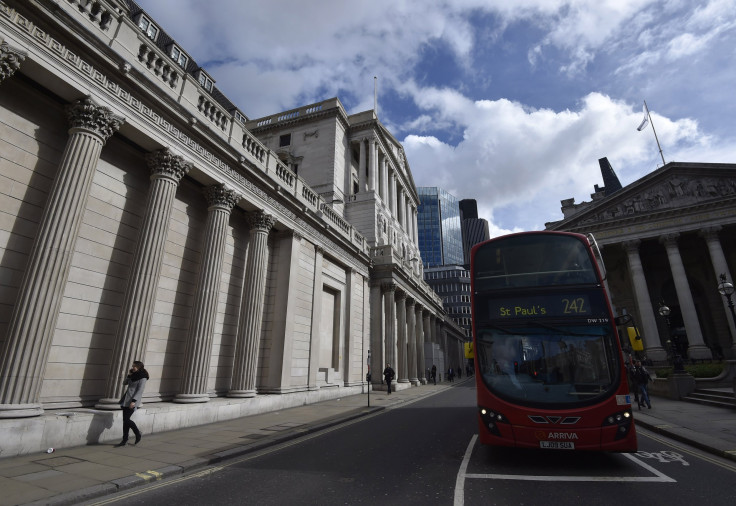Bank Of England Keeps Key Interest Rate Steady At 0.5% As Brexit Uncertainty Looms

UPDATE: 7:04 a.m. EDT — In a widely expected move, the Bank of England’s nine-member Monetary Policy Committee (MPC) voted unanimously Wednesday to keep its benchmark interest rate at 0.5 percent, citing stubbornly low core inflation and uncertainty regarding the U.K.'s future in the European Union as reasons for doing so.
“The MPC’s best collective judgement is that it is more likely than not that Bank Rate will need to increase over the forecast period to ensure inflation returns to the target in a sustainable fashion,” the BoE said, in a statement released Thursday. “However, referendum effects are likely to make macroeconomic and financial market indicators harder to interpret over the next few months, and the Committee is likely to react more cautiously to data news over this period than would normally be the case.”
Original story:
During its monetary policy meeting Thursday, the Bank of England (BoE) is widely expected to keep its benchmark interest rate unchanged at 0.5 percent — a level it has maintained for over seven years. Persistent worries over global economic headwinds and a looming uncertainty vis-à-vis the U.K.’s future in the European Union are likely to offset any demands for a rate hike generated by the recent spike in inflation.
Last month, all nine members of the bank’s Monetary Policy Committee voted to keep the rates on hold, citing “subdued” core inflation.
“Returning inflation to the 2 percent target requires balancing the drag from external factors against increases in domestic cost growth. Fully offsetting that drag over the short run would, in the MPC’s judgment, involve too rapid an acceleration in domestic costs, one that would risk being unsustainable and would lead to undesirable volatility in output and employment,” the BoE said in the minutes of the March 16 policy meeting.
According to official data released earlier this week, inflation in the U.K., as measured by the consumer price index, rose to a 15-month high of 0.5 percent in March — up from 0.3 percent in February.
However, the figure is still way below the central bank’s 2 percent target, and recent gauges of the domestic manufacturing and services sectors have indicated that growth in the country remains sluggish.
The U.K. is scheduled to hold a referendum on June 23 on the so-called Brexit. According to the International Monetary Fund (IMF), if the country decides to leave the 28-nation European Union, it could cause “severe regional and global damage.” The international lender, which slashed its forecast for global economic growth to 3.2 percent in 2016 — down from its previous estimate of 3.4 percent — also cut its U.K. growth forecast, to 1.9 percent in 2016 — down from its January estimate of 2.2 percent.
“Why make an uncertain situation even more uncertain? I think they’ll hold fire a while,” Martin Beck, senior economist at Oxford Economics, told MarketWatch. “We think inflation will get to 1 percent by the end of the year, and it is very difficult for the bank to raise rates when inflation is so far below target. So we think — Brexit or no Brexit referendum — it would still be a long time before rates go up.”
© Copyright IBTimes 2024. All rights reserved.






















